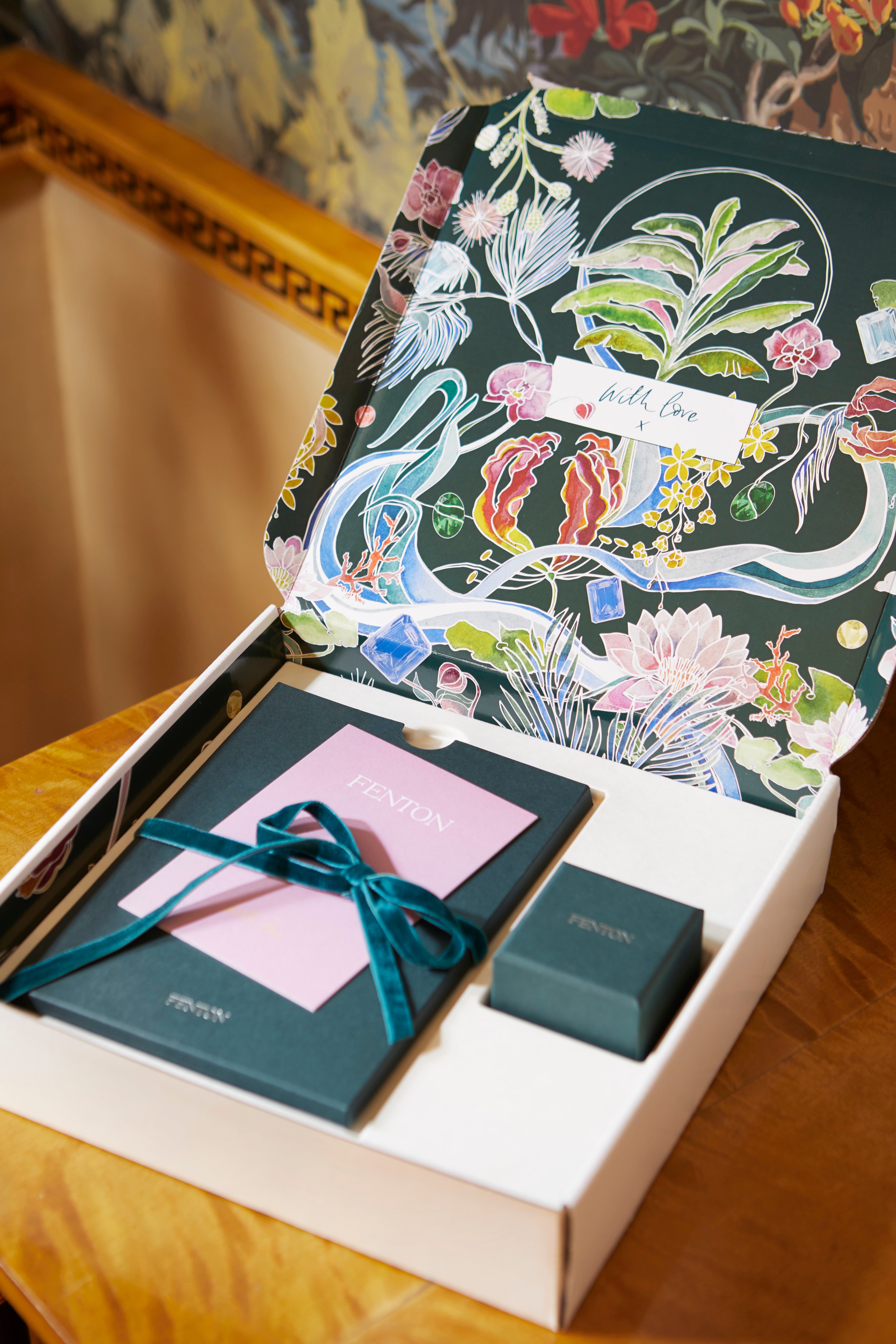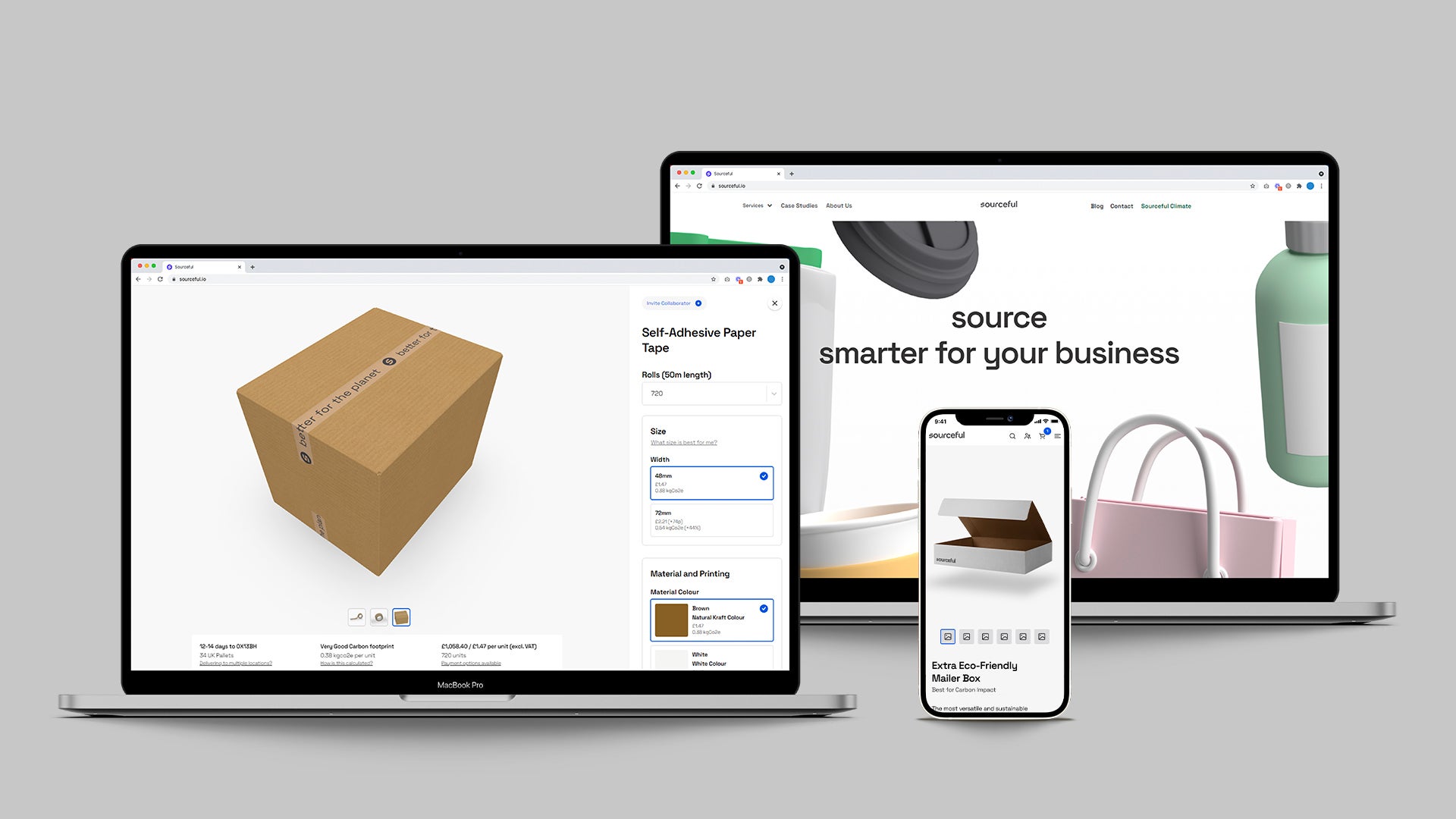How Sourceful is making businesses more sustainable and less polluting
Wing Chan spoke to Andy Martin about how you can make a product good, not just functional but ethical too, and, above all, sustainable


When Wing Chan started Sourceful, the company which aims to help other companies clean up and slim down the carbon footprint of their supply chain, he said to himself, “I want to do something boring and non-sexy, but good for the world.” He was convinced that no one was ever going to write any articles about supply chains. There would no buzz and no publicity. Nada.
And then, in the wake of the pandemic, those two simple words, “supply” and “chain”, took off and rocketed up the charts of the collective consciousness. And Sourceful found itself squarely at the heart of a national or global crisis. “I was taken by surprise,” says Chan. “Who would have guessed the supply chain would ever make headline news?”
Wing Chan was brought up at the southern end of the Northern Line. He studied computer science at Trinity College Cambridge and not only graduated with a First but came out top of his year in 2013, even while masterminding IT for the Trinity May Ball. Which helps to explain how he became an MD at the tender age of 22, working for The Hut Group (now THG) and running a business within the business. Preloved was his initiation into the circular economy and it soon became a big deal with over 5 million users who refused to throw their unwanted Christmas gifts in the bin.
As The Hut Group continued to acquire businesses, Chan became the group Chief Marketing Officer, concerned mainly with e-commerce. His feeling was that they had overcome most of the challenges in marketing and tech. “It’s got easier and easier,” he says. But there was one outstanding problem that had not yet been solved. They could market a product and sell it. But the reality is that the product could still be terrible in one way or another. So the question remained: how could you make it good? Not just functional but ethical too? And, above all, sustainable, with minimum cost to the environment. “Convenience,” says Chan, “is a universal trend. But there is a trade-off.”
Chan wanted to solve that problem – for all brands, not just The Hut Group. “I joined The Hut Group very young and had lots of opportunities. But I wanted to spend the next twenty years doing something useful. I didn’t think anyone would take any notice.” Sourceful launched in June 2020, based in Manchester, bang in the middle of the pandemic.
“There’s no bad time to start it,” says Chan.
Not only was the new packaging fully recyclable, but it was 50 per cent cheaper too. They had no more plastics and only vegan leather
He modestly acknowledges that he is following in his father’s footsteps. Mr Chan senior is a graduate of Imperial College and worked on warehousing and logistics software and containers. He was ahead of his time. “When I was a kid I would say to my dad, ‘But that’s the boring stuff!’ Now I’m doing it. He’s had the last laugh.”
Boring turns out to be fundamental when it comes to making business more sustainable and less polluting. 83% of the greenhouse emissions associated with any product derive from further down the supply chain. Which is where Sourceful comes in – to iron out all the wrinkles every step of the way. They work with brands that care about being responsible. “They want to do something that will resonate with consumers. More and more brands are signing up to the same thing. You can’t launch a brand and say ‘I don’t care about making my product sustainable.’” But something similar applies to big established brands too. They can’t afford to be shown up by the newcomers.
Sourceful had a jewellery brand, Fenton, come to them. Fenton is a B-corp, specialising in “ethical” gems. They were already thinking about sustainability. But their problem was that they were online. And they were trying to fit the whole shop experience of showing off a ring or a necklace into a box. “There was a ton of packaging,” says Chan. “And it wasn’t the best.”

Sourceful did a complete re-design. “They went from bad to beautiful,” says Chan. Not only was the new packaging fully recyclable, but it was 50% cheaper too. They had no more plastics and only vegan leather. “There are all these new materials now – you can wash them down your sink or put them in your compost.” They’ve worked similar metamorphoses with florists and curtain makers and cafés – no more of those unrecyclable cups.
Consumers are more eco-conscious than ever and more driven to re-evaluate their own habits. The great thing about Sourceful is that it refuses to guilt-trip consumers. We all produce a lot of rubbish, even if we are trying to cut down. From time to time I have suggested that extremely irresponsible litterbugs, in particular, should be given a hefty fine or locked up (or worse). But I know that in reality a few idiots going down, satisfying though that would be, is not going to make a lot of difference to the big picture, given the amount of potential litter waiting to be dropped. Sourceful, in contrast, really does make a significant difference by cutting down the amount of rubbish to dump in the first place. “We thought no one would care about it – but they do,” says Chan. Now if they could only do something about certain fast food producers who seem to be responsible for most of the litter in my street (and there are still some bad guys I’d like to see doing time pour encourager les autres!).

Sourceful has received a lot of backing (notably from Index Ventures) and has grown rapidly to a team of over 50 (and 50% women). All employees are also shareholders in the company. They’re all highly motivated, driven by a collective desire to cut down on sheer excess. Chan says that they all have a “philosophy of reduction”, but they are not dogmatic or coercive. They employ a lot of vegans, for example, but veganism is not compulsory. “We reflect society. We have vegans and we have carnivores. We have people who love to travel and those who don’t. We want everyone to eat less meat and take fewer flights, but we don’t tell anyone what to do or what not to do.”
Sourceful hires PhDs to “carbon-score” packaging and determine what size or shape of box has a bigger impact on the environment – and how thick a bottle needs to be. They have a platform due to debut in 2022 with a catalogue of products ranked according to their sustainability. Chan says that he would like smart young people to know that “there’s a different career available – you can join us and do something to change the world rather than go into, let’s say, investment banking.”
Sourceful have set out to inspire – one of the first things they did was to award funding to three of the best carbon-capture projects around the world “It doesn’t make us money – it’s what we think is right.”
Wing Chan admits that back in the days of the Trinity May Ball “we didn’t pay proper attention to recycling.” But a lot has changed over the last few years. “We are encouraged by what the government is doing.” But I reckon that if the government really wants to have an impact on emissions, they ought to make Wing Chan their packaging czar. When it comes to Christmas, I’m going to wrap presents only in brown paper – or possibly newspaper – maybe a copy of the i. I think a Sourceful Santa would approve.




Join our commenting forum
Join thought-provoking conversations, follow other Independent readers and see their replies
Comments